I’ve just returned from two weeks in Iran. Firstly, to attend the International Islamic Unity Conference in Tehran which included attending Ayatollah Khamenei’s residence once again to hear him speak. He talked about the importance of standing up against injustice and unjust policies and said that for 40 years Iran’s example has been to stand up and resist without compromising on its principles.
Apart from the conference, I met senior clerics, including Ayatollahs, in Tehran and Qom, to discuss the challenges facing the Muslim Community in the West and the policies being enacted against them.
This included an invitation to the Office of Ayatollah Khamenei for a lengthy discussion. Whilst there I also met with senior management that oversees the international affairs and representatives of that Office.
I also had the time to speak to senior media management, political experts and academics, many of whom have know me through my journalism work for over a decade.
Not all of these people have the same opinion on everything. It would be selling Iran short to think that it is not like any other diverse and vibrant country, with its own political spectrum and its own internal politics that can sometimes get very complicated. Having said that, in the discussions I had with this varied group, the position was very clear across the board;
I was told that whilst there is something they call “extremism”, such as ISIS, which is a cancer inflicted on Muslims; this “extremism” is completely different to what the West defines as “extremism” and completely different to the Islamophobic policies that stem from these incorrect definitions that deem Muslims “radicalised” or “extremist”. I was told by all, including directly by seniors at the Office of Ayatollah Khamenei, that this latter definition and policy of “radicalisation” and “extremism” is rejected.
At yesterdays important and HUGE anti-Trump demo in London I spoke to anti-fascist leaders and veterans. They warned me that, as great as the turnout was, the Left in London was living in a bubble and didn't acknowledge or understand what was happening up and down the country.
That's nothing new. 8 years ago when I used to cover EDL demos, many would ask why I'm bothering, they're not worth a thought, not worth the oxygen, nothing more than something to be laughed at. Tommy Robinson is a joke. When I disagreed there were many heated debates and arguments.
We tried to warn then, what complacency would bring about. Not enough people listened. They mocked and disenfranchised those who were being fed by the mainstream press and politicians (including the Labour party) about Islamophobia and immigration - a handy scapegoat for all the billions spent on war and bailing out the banks post-2007.
Nobody has given a sh*t about the working class up and down this country, including an elitist Left that, by and large, is too snobby to do anything other than name, mock and demean.
We warned Brexit could happen and so could Trump. But for too many in the big cities, in their bubbles, their brain's simply couldn't register that it could.
In the meantime, facilitated by mainstream political and media hate, the nasty corners of our Establishment were buoyed. They wanted to push the rhetoric in to full blown and open transparency. And they did. They didn't create something new, they used what had already been placed there.
I want to take a brief moment today to tell you about just 5 Muslim women, from the earliest years of Islam and what they teach us about our worth and our potential.
These are, of course lessons, for all women and men. But I think it’s particularly important for people – especially non-Muslims – to understand what Muslim women are really taught and who their role models really are.
The Prophet’s wife, Khadija -proposed to him, was older than him and was the most prominent entrepreneur of her time. She was a rich and successful businesswoman (far richer and more prominent than him). Their monogamous marriage was filled with love and respect. It was Khadijah – a woman - who was the first person to confirm Muhammad’s prophet hood. Yes, the first Muslim was a woman.
The lineage of the Prophet is also through a woman; His daughter, Fatimah. Fittingly for international women’s day it is also her birthday today.
Muslim women fought on the front lines. Like Nusayba who fought in the battle of Uhud, alongside the Prophet.
The first martyr of Islam was also a woman. When the Prophet Muhammad first began to preach publicly, there was quickly an active persecution of the small Muslim community Summayah and her family were targeted. She was tied up, beaten and stabbed to death when she refused to recant her faith.
Women took leading roles in standing up against tyranny – even when the other side were Muslims themselves. Just five decades after the Prophet’s death and Muslim leadership had fallen in to corrupt hands.
It can be hard to understand Iran. And even harder to explain it. Especially at a time like this.
There are 80 million Iranians, whose views and news have almost always been packaged, described and analysed in the most reductive way; both inside and outside of the country.
It has often seemed the more reality on the ground has required shades of grey, the more black and white it has been explained away.
Of course, at some point, the oversimplification of these explanations start folding in on themselves, and that certainly feels like the crossroads that Iran – or at least our analysis of it - stands at now.
The sudden protests of the last week could be seen as a sort of perfect storm. But in many ways it is always hurricane season in Iran.
Reading that, your mind might automatically find itself thinking of the dictatorship of the Islamic regime, or the brave protesters fighting for their freedom on the streets.
The truth is, that is just part of the story, from one perspective.
One of the difficulties of exploring the Iranian landscape is to try and understand the whole tapestry without dismissing one of the many fabrics that make it up.
It isn’t made easy by the fact that Iranians are mostly very passionate and often easily offended, especially when it comes to politics. Trying to understand a view is often seen as endorsing it.
America has just tragically faced its worst mass shooting in history.
At least 50 people have been killed and more than 200 injured at a music festival in Las Vegas. Unfortunately, that death toll is very likely to rise.
The Independent is reporting the shooter as "Stephen Paddock: Las Vegas gunman identified by police as 64-year-old white male"
The police have said it is "not terrorism."
When incidents like this happen, I used to always leave analysis for the days later, out of respect for those killed and fighting for their lives.
But what I have realised, in our social media age, is that by then it is too late. People have already formed emotional and reactionary narratives. And, if I am brutally honest with you, things move so fast these days, sometimes people have already "moved on".
Social media makes us have instant emotional outbursts and a very short attention span. This would in all other circumstances be called irrationality. These days all we do is reinforce irrationality and call it the norm. Worse, we call it the truth
So, perhaps to truly respect these unnecessary deaths, one must try and cut through that clearly, in an attempt to recalibrate our narrative in a way that can actually be preventative, rather than a cycle where the only thing that changes is our mode of denial....
Read this BBC article and come back to me.
No really, go on, I'll wait.
You might not think it, but this article and story reflects so much of what is wrong with our society, our media, our politics and our world today. I am just listing the things that come to mind as I read it.
1. First line says "A student". Since he was not a Muslim, not a British-born Muslim. Since he was not Black. And they couldn't say White man, or English, they say student. It's not clear if this is meant to soften up his image, or demonise students. Perhaps both, dependent on audience. It works. The main thing is, he shouldn't be classified as White, English, or Christian. And everything that follows should make him an anomaly to any of these "safe" tag-words and smear him with "unsafe" tag-words that will make the general reader still think of the "other" (in this case Muslims and Islamic terrorism)
2. Paragraph reads; "The Old Bailey was told Smith had an autistic spectrum disorder and a keen interest in guns, bombs and other weapons, which may have been a function of the condition."
Again, giving a reason/excuse for why this man is an anomaly to his group. Non-muslims get this treatment by the police, the press and politicians. Muslims do not.
But beyond that, I have to say, that...
Meet Julian.
I just did.
I saw him sitting under the courtyard roof of a luxurious block of new build flats in West London. I went up to him to see if he wanted anything to eat. He had an unlit roll-up cigarette in his hands but he wasn’t moving. I thought he’s probably asleep. I walked away and for a split second I thought I should have checked if he was actually sleeping or god-forbid worse.
I turned back and I saw him taking a drag of his cigarette, eyes closed, as if he wasn’t even there. As if he didn’t even exist,
“Excuse me” I said “are you ok?” He opened his eyes and looked at me. “I’m so cold” he said. He held out his hands to try and warm them with mine.
“I’m sorry”, I said.
“It’s not your fault,” he said.
“Would you like something to eat?” I asked.
And Julian burst in to tears. I sat on the floor with him as he talked. Sometimes we just need to be seen and heard. Sometimes, unfortunately, all we can do is see and listen.
He talked and cried for almost an hour.....
I just spent a week in Iran and tried to film a bit every day whilst I was there. There was no planning, or editorialising these videos. It's literally filming when I had time, around what I was doing in my very short (and last minute) trip there.
The first video is just a warm-up, given that the only thing I did outside the house on Day 1 was go to the bank lol
There are many more beautiful places to see in Tehran and Iran, so this isn't a tourist guide or anything like that but rather a genuine reflection of what my trip was; a short and sweet - and relatively local trip - that happened to coincide with the Iranian New Year.
I think given this, it is quite a good reflection of "day to day life" in Iran when I visit.
As you will see if you watch all seven videos, Iran doesn't just look like one thing!
Anyway, I hope for those who have always been curious, it might be just a small window in to what Iran, sometimes, looks like.
I had only been in the UK 24 hours when I heard about the Westminster attack. I had just spent 3 weeks in Iraq and Iran.
This is one of the stories I wanted to share with you all on my return. It seems more poignant now. Not to diminish the horrific attack in London, but to encourage us to have perspective and to extend our humanity to all....
....This man is an Iraqi Turkmen from Mosul. His 3 sons were killed by ISIS there. The remaining family - including his dead son's children - fled to the family Hussainiya in Najaf where they now all live.
A lot is being shared on social media about Allepo. On Monday I took to social media to express my heartbreak for the destruction of Syria, and the innocent lives lost.
In general, I stopped discussing Syria publicly several years ago. My voice was lost in the noise and attacked by both sides. As an Iranian and a Shia, the prejudice of many would make them deaf to what I would say, jumping on any little point that they didn’t fully agree with. Some of the comments on my post on Monday showed the opposite to be true too. If I say something that doesn’t fully defend “the opposition of the opposition” under all circumstances I will be called a sell-out, Western stooge straight away.
Despite this, I feel compelled to write more; this time focusing on some issues of politics and media.
As a Brit watching the unfolding theatrics of the American presidential election, I cannot help but think of the Brexit Referendum.
Here, the complex social, political and economic context - that created the environment - that facilitated the vote and the outcome were ignored. Instead the arguments and the ultimate decision put forth were oversimplified, the very framework of the debate, and in many ways society, were redefined within these terms.
As someone who has studied or worked in the media for 13 years, one of the biggest culprits – if not the biggest – is the media. We are being failed by our media. Fundamentally and almost absolutely. While online social media has its benefits, for the institution of journalism and media, it has been a nail in the coffin.
The media plays such an unbelievably pivotal role in society. But I increasingly struggle to see how it is doing anything other than taking us further and further away from reality. A reality that we must acknowledge, accept and understand before any real change or progress can be made.
Of course, it’s not all bad. But...

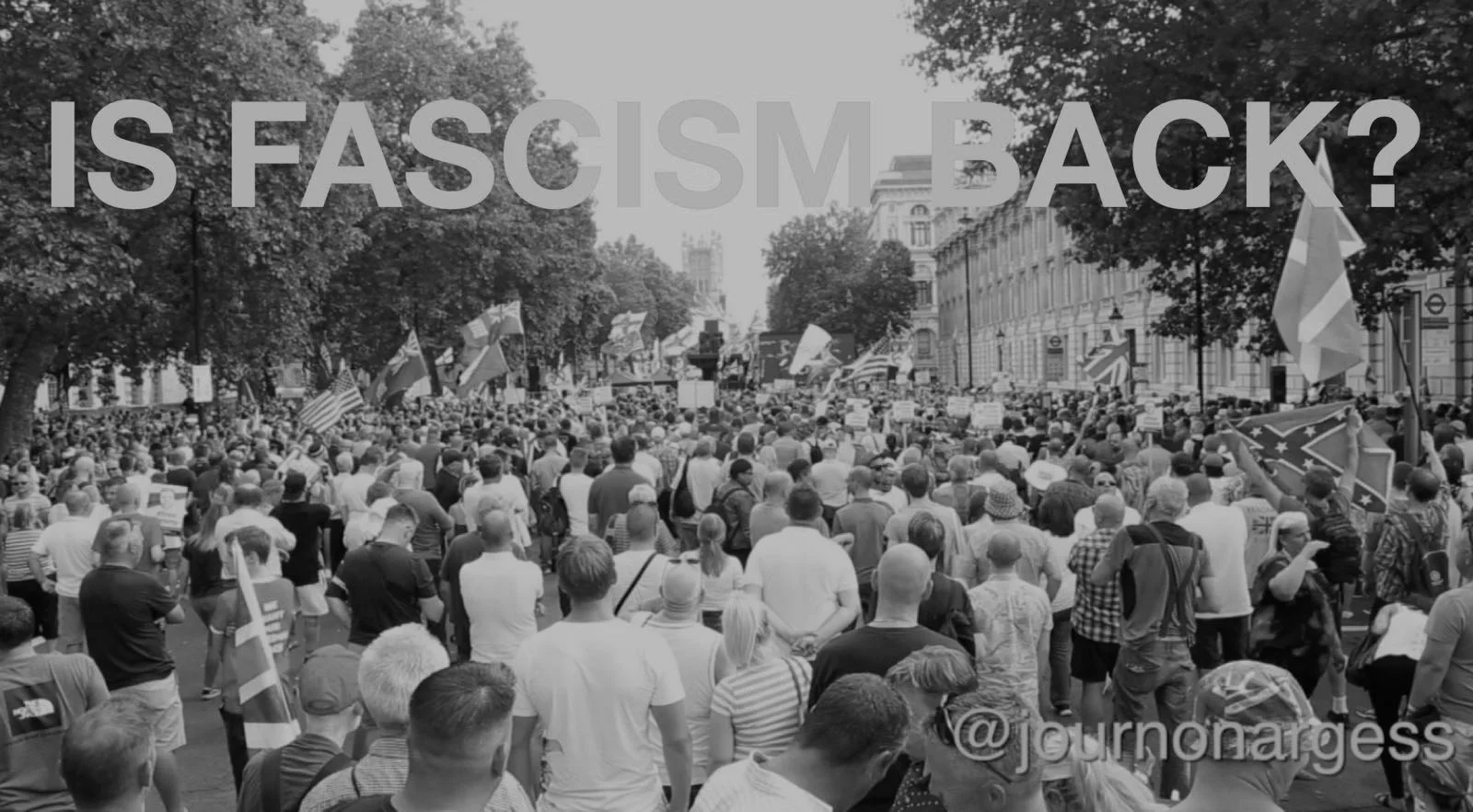
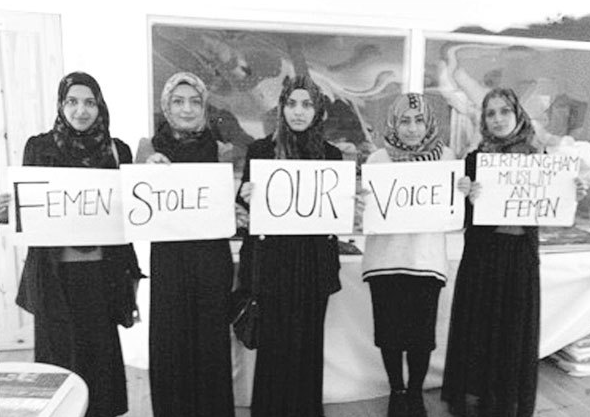


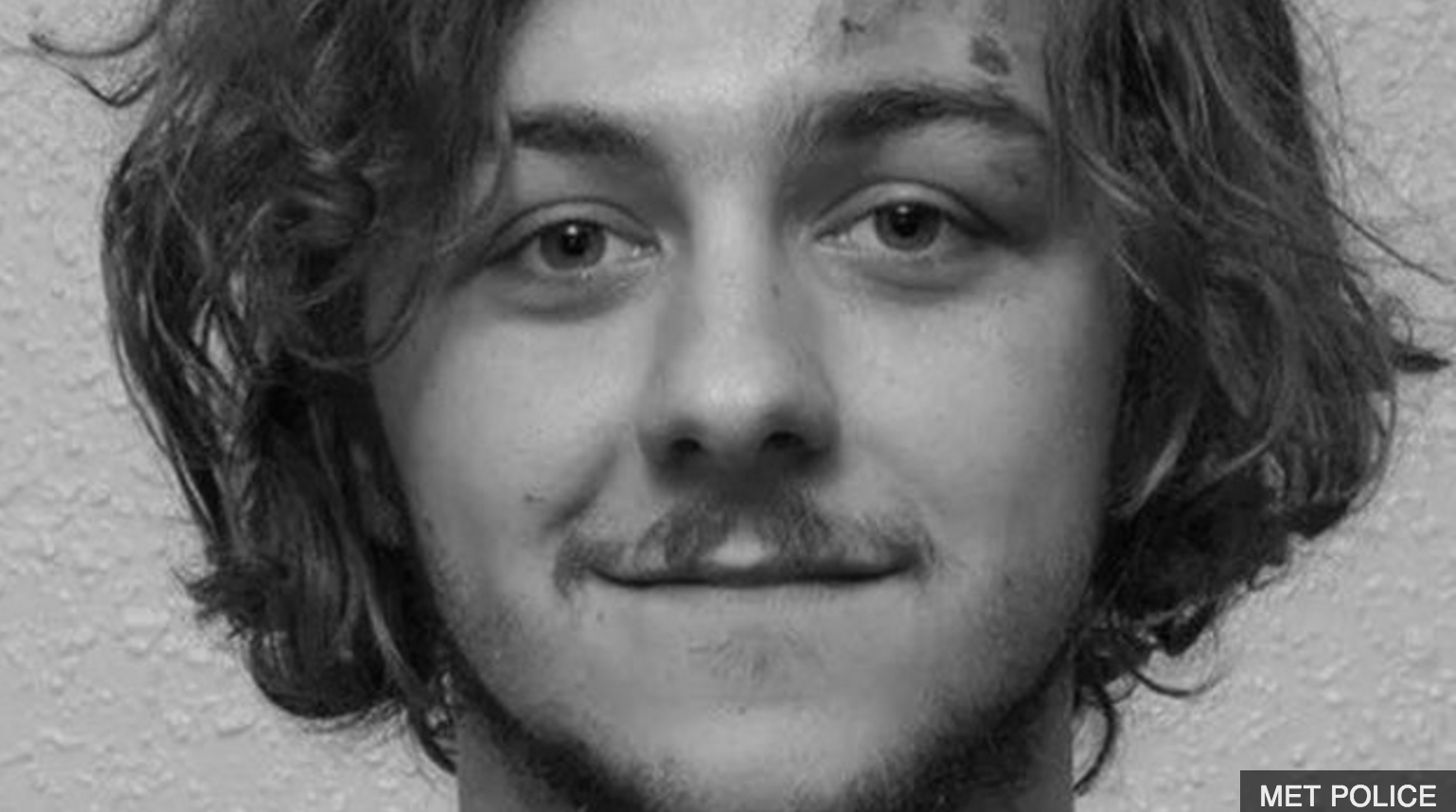


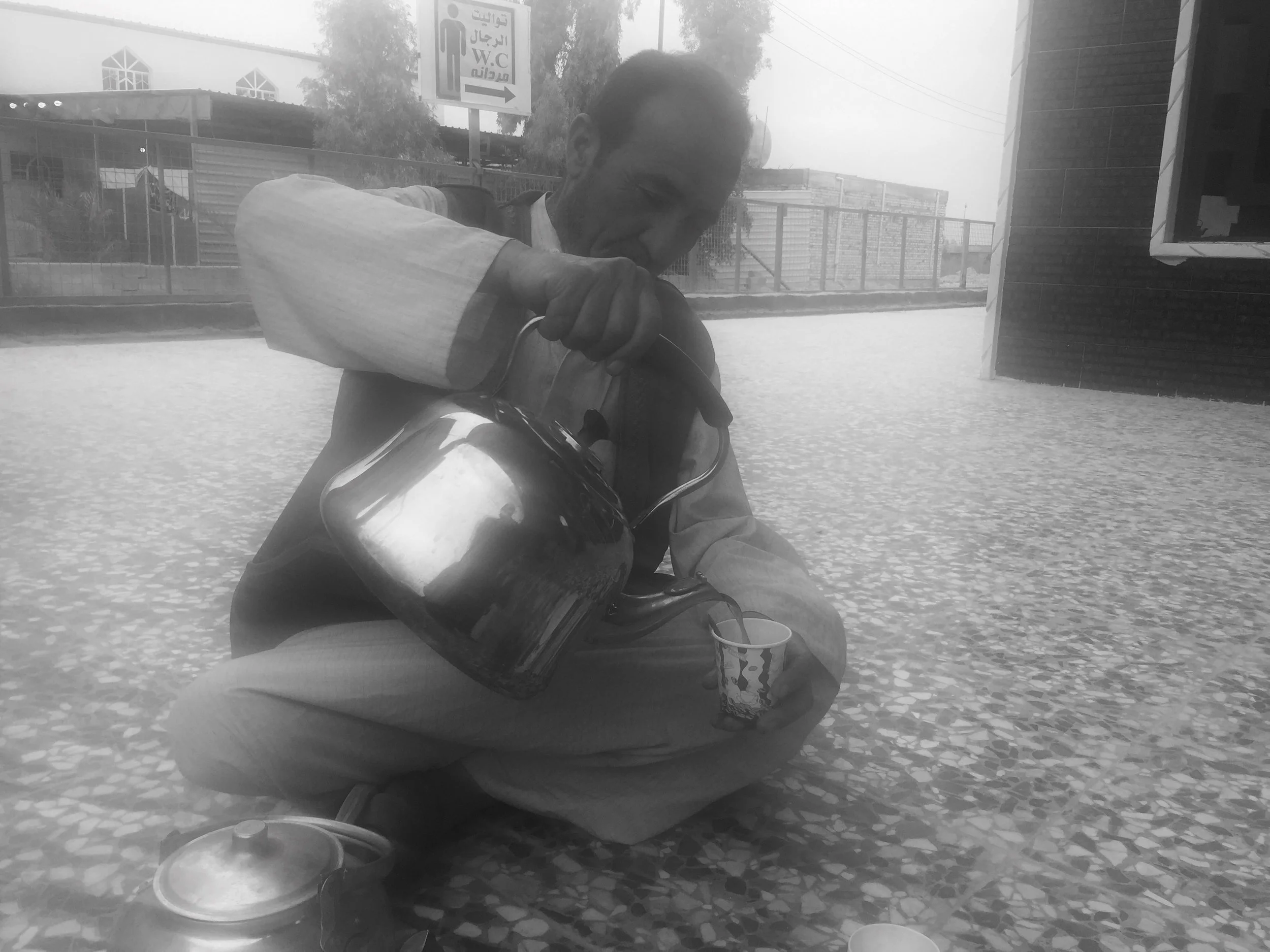
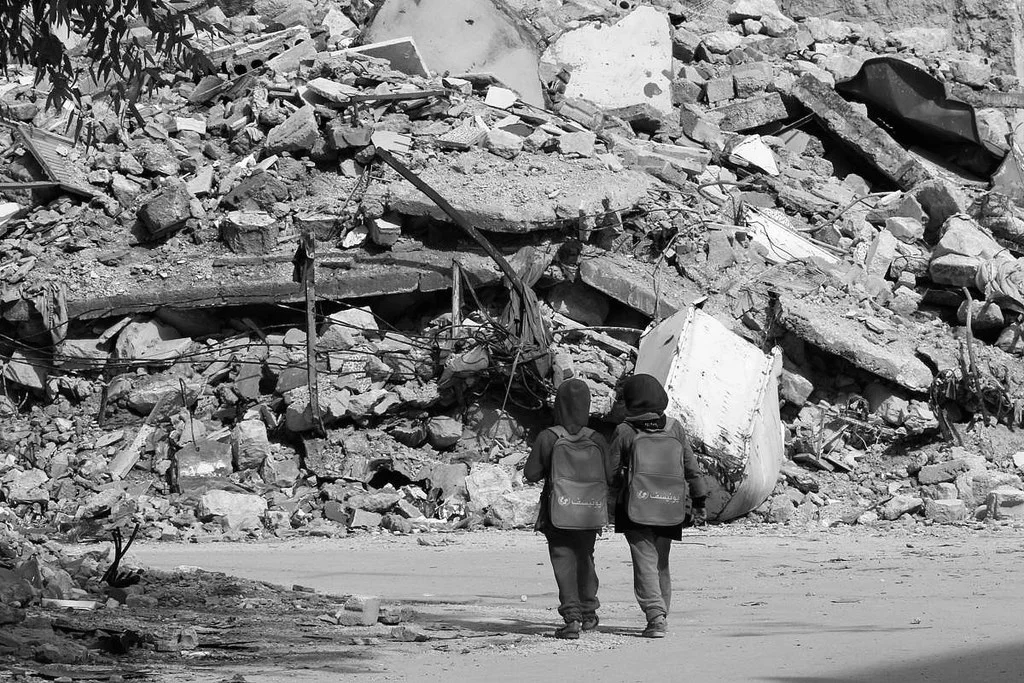

It is ironic that Tony Blair’s new report is titled Narrative of Division.
We’ve been waiting for this to launch for a few months.
It targets organisations Cage, IHRC, MPAC, MEND and Hizb Tahrir as “non violent extremist groups” and provides a body of “evidence” to help clarify the “grey area” (ie, the law and their basic political and religious rights) that has meant there is a debate over their “non-violent extremism” status.
In short, it’s part of the politicised agenda to build a body of “evidence” to criminalise these organisations and shut down Muslim political activism in the U.K. at a time that Muslims are being institutionally targeted like never before.
I won’t keep punning about the irony of Tony Blair talking about evidence for his latest war....
But I will - again - make this urgently seriously and sobering point;